Related Research Articles

The University of Chittagong is a public research university located in Hathazari, Chittagong, Bangladesh. Founded in 1966, it is one of the oldest university in Bangladesh. It is also known for providing quality education to its students. Its 2,312 acres (936 ha) campus is the largest among Bangladeshi universities.

Nazrul Sangeet, also Nazrul Geeti, refers to the songs written and composed by Kazi Nazrul Islam, the national poet of Bangladesh. Nazrul Geeti incorporate revolutionary notions as well as more spiritual, philosophical and romantic themes. Nazrul wrote and composed nearly 4,000 songs, which are widely popular in Bangladesh and India. Some of the most notable Nazrul Sangeet include Notuner Gaan, the national marching song of Bangladesh and O Mon Romzaner Oi Rozar Sheshe, an Islamic song on the festival of Eid-ul-Fitr.
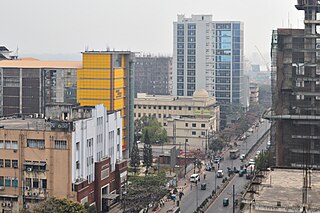
Chittagong District, renamed the Chattogram District, is a district located in the south-eastern region of Bangladesh. It is a part of the Chittagong Division. The port city of Chittagong, which is the second largest city in Bangladesh, is located within this district.
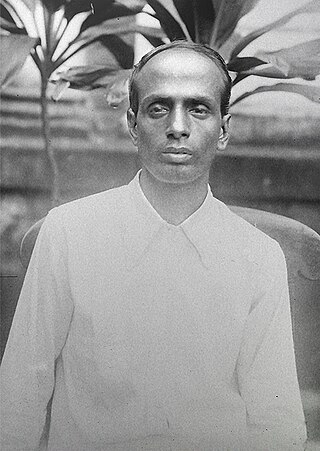
= = Chittagong Uprising = =

Ganesh Ghosh was an Indian independence activist, revolutionary and politician.

Panchanan Chakravarti was a Bengali Indian revolutionary, one of the creators of the Revolt group after the momentary unification of the Anushilan Samiti and the Jugantar in the 1920s. Friend of the poet Kazi Nazrul Islam, he was a close associate of Subhas Chandra Bose.

Hathazari is an upazila of Chattogram District in Chattogram Division, Bangladesh.

Harigopal Bal or Baul popularly called as Tegra was a Bengali revolutionary who took part in revolutionary activities against British rule in India.
Uttam Kumar was an Indian actor, director, producer and singer who predominantly worked in Indian Cinema. Through his career he earned commercial as well as critical success, and he remains as an Bengal's cultural icon. For his ability to play roles of various types, Kumar is regarded as one of the greatest and most versatile actors in the history of Indian Cinema and is called as Mahanayak. Kumar was one of the most popular and successful actors in Bengali Cinema history. He debuted as Arun Kumar Chatterjee as a child artist in the 1948 film Drishtidaan directed by Nitin Bose. The film was unsuccessful. Next year he appeared as a leading hero as Uttam Chatterjee in the film Kamona 1949 which was flop again. He changed name again as Arup Kumar. In 1951 film Sahajatri he kept his name permanently as Uttam Kumar. But he gave back to back seven flop films and was stated as flop master general.
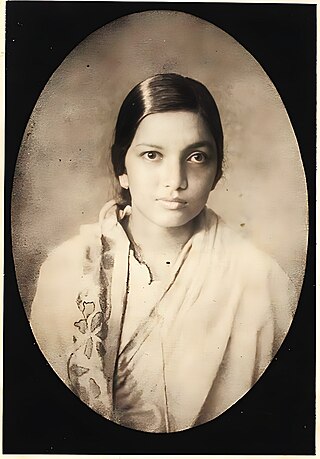
Kalpana Datta, also Kalpana Joshi, was an Indian independence movement activist and a member of the armed independence movement led by Surya Sen, which carried out the Chittagong armoury raid in 1930. Later she joined the Communist Party of India and married Puran Chand Joshi, the general secretary of the party in 1943.
Indrani Sen is a Bengali singer who is known for Nazrul geeti and Rabindra Sangeet.
Ananta Lal Singh was an Indian revolutionary, who participated in the Chittagong armoury raid in 1930. Later, he founded a far-left radical communist group, the Revolutionary Communist Council of India.

Surya Sen, also known as Surya Kumar Sen, was an Indian revolutionary who was influential in the independence movement against British rule in India and is best known for leading the 1930 Chittagong armoury raid.
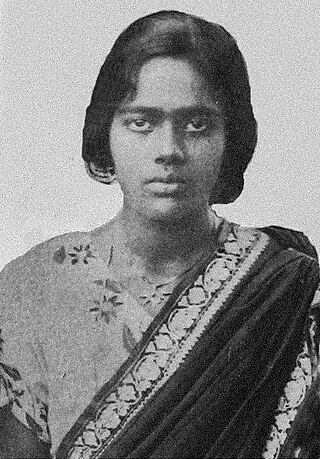
Pritilata Waddedar was an Indian revolutionary nationalist from the Indian subcontinent who was influential in the Indian independence movement. After completing her education in Chattogram and Dhaka, she attended Bethune College in Kolkata. She graduated in philosophy with distinction and became a school teacher. She is praised as "Bengal's first woman martyr".

Jatindra Mohan Sengupta was an Indian revolutionary against the British rule. He was arrested several times by the British police. In 1933, he died in a prison located in Ranchi, India.
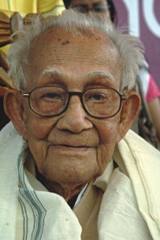
Binod Bihari Chowdhury was a British India and later Bangladeshi social worker and an anti-colonial revolutionary. He was influential in the Indian independence movement and a veteran member of the civil society of Bangladesh. He is mostly known for his participation in the Chittagong armoury raid, an armed resistance movement led by Surya Sen to uproot the British colonial rule from British India in 1930.

Desh (transl. Country) is a 2002 Bengali film directed by Raja Sen. The film is based on a story written by Prafulla Roy. It is written against the backdrop of arms trafficking in North Bengal.
Premananda Dutta was a Bengali revolutionary and activist of Indian freedom struggle attached with Chittagong Rebellion against the British Government in India.

Jiban Ghoshal alias Makhanlal was an Indian independence activist and a member of the armed resistance movement led by Masterda Surya Sen, which carried out the Chittagong armoury raid in 1930.

Tarakeswar Dastidar was an Indian independence activist. He participated in the Chittagong armoury raid, along with Surya Sen and others on 18 April 1930.
References
- ↑ "Ode to Independence: How have Bengali feature films depicted our freedom movement? (Part 1)". Bengal Film Archive. Retrieved 2023-11-17.
- ↑ "Indian cinema booklets collection". oac.cdlib.org. Retrieved 2023-11-17.
- ↑ Division, Publications. Yojana August 2022 (English) (Special Issue): A Development Monthly. Publications Division Ministry of Information & Broadcasting.
- ↑ "Chattagram Astraghar Lunthan (1949)". Indiancine.ma. Retrieved 2023-11-17.
- ↑ "Row over AR Rahman version of Nazrul song gets murkier as family feud surfaces in the wake of legal threats for 'Pippa' producers". www.telegraphindia.com. Retrieved 2023-11-17.
- ↑ "Nazrul kin protest Rahman version of 'Karar oi louho kopat'". The Times of India. 2023-11-11. ISSN 0971-8257 . Retrieved 2023-11-17.
- ↑ "'কারার এই লৌহকপাট' প্রথম রেকর্ড করেছিলেন গিরীন চক্রবর্তী, এ আর. TheWall. 2023-11-11. Retrieved 2023-11-17.
- ↑ "'Chattagram Astragar Lunthan' (1949)". The Times of India. ISSN 0971-8257 . Retrieved 2023-11-17.